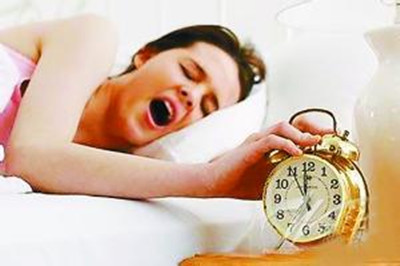Don't forget to move your clocks forward this weekend.
这个周末不要忘记调整你的闹钟。
And then don't forget to be more careful in the days after you adjust your clocks.
之后也不要忘记要小心谨慎些。
Because a recent study found that the hour of lost sleep was related to increased job-related injuries.
因为最近一项研究表明睡眠时间的损失和工伤事故的增加有关系。
Probably because sleepy workers were less alert.
或许是出于昏昏欲睡的工人们警惕性不高的缘故。
The work appeared in the Journal of Applied Psychology.
这项研究工作已在《应用心理学》杂志上发表。

Organizational behavioral psychologists Christopher Barnes and David Wagner analyzed reports filed with the National Institute for Occupational Safety and Health about injuries that took place in mines.
组织行为学心理学家克里斯托弗·贝纳斯和大卫·瓦格纳分析了在国家职业安全与健康研究所中存放的一些关于煤矿事故的档案。
The study looked at all reports between 1983 and 2006.
他们选取了1983到2006年间的一些事故调查报告。
And they found that compared with other days, more injuries happened on the Monday after daylight saving time went into effect.
他们发现与平常日子相比较,夏令时开始后的每周一工作日事故发生的频率更高。
And the injuries were more severe.
而且人员伤亡也较严重。
Survey data found that people sleep on average 40 minutes less on the Sunday night right after the time change.
调查数据发现周日夜晚刚好在时间变更后人们的睡眠时间比平均少了40分钟。
The data also revealed that on Mondays after the switch to standard time,when we gain an hour of sleep,there's no significant differences in sleep or injuries.
该数据也显示出在周一调整成标准时间后,当我们多了一小时的睡眠时间,睡眠和受伤之间的关系也并没显示出什么特别重要的差异改变。
So enjoy that extra hour of sunlight in the evening. Carefully.
所以尽情享受晚上多出来的这一小时时光吧。小心为上。













